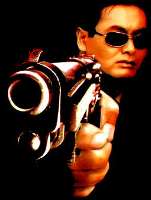Learn Mandarin Chinese
Progressive self study course for absolute beginners to intermediate learners

Progressive self study course for absolute beginners to intermediate learners

There are over 400 lessons to choose from. Absolute beginners should start at lesson 1. Each lesson continues where the last one left off.

Later lessons use the Chinese that was taught in earlier lessons. This way you are constantly reusing and remembering what was taught.

Premium subscribers get access to exercises, games and flashcard activities to reinforce what was taught.

Sign up with your Facebook account to try out the first 4 lessons of the course for free.

Today's post describes the naming system used in Chinese families and how they differ from Western conventions. The biggest difference is that in Chinese, the family name is listed first. This can cause a problem when moving to Western societies. Some adopt the Western convention by using a Western first name and moving their family name to the end (such as actor Jackie Chan). Others may choose to retain their Chinese name but change the word order (such as Chien Ming Wang, pitcher for the NY Yankees baseball team). Others may decide to leave their name and word order as it is, such as in the case of Chow Yun Fat (pictured above), the famous Hong Kong actor. For less common names, this can cause confusion as to which is the first name and which is the last name. Indeed, Chow Yun Fat has corrected many who address him as Mr Fat, pointing out to them that it should be Mr Chow instead.
Unlike in Western societies, where there are several common first names and a lot of varying last names, in Chinese there are a lot of common last names, and it is the first name that tends to vary from person to person. In fact, estimates suggest that the top 100 common family names are shared by 90% of the Chinese population! Chinese family names are usually formed using a single character, whereas the first name is made up two characters. As a teacher, I found it fascinating to look through the class attendance lists which were all uniform as every student's name was 3 characters long. You may also notice this the next time you stay to watch the credits at the end of a Chinese movie.
Whereas in English, there are certain words reserved as common names (John, Peter, Paul etc.), in Chinese, pretty much any word combination can be used to form a given name. This sometimes causes a problem when Chinese people are looking for Western names, as they assume the reverse is true. This results in their trying to form English names for themselves using words out of a dictionary, or by forming a literal translation of their Chinese names which can produce strange results (the first producer I used in Taiwan for my podcast introduced himself as "Dull Bird" which I didn't bother questioning). When a child is born, convention is usually to give them a nickname to begin with, giving the parents time to seek a more proper name for the child (usually done within the first month of birth, sometimes with the help of a fortune teller). This is why stories using children often refer to them as "Little so and so" or using a character that is repeated twice (makes it sound cuter!). It is usually possible to guess the gender of a person from a name, since men tend to be given names with masculine meanings while women's names usually promote female qualities. When women get married, unlike in traditional Western culture, they often retain their maiden name. Children however will adopt their father's family name.
There are several options available for Westerners looking to create Chinese names for themselves. One option involves a standard transliteration of their Western name into Chinese. This is the format used for many famous Western stars giving us names like Tāngmǔ Kèlǔsī (汤姆克鲁斯) for actor Tom Cruise. However, this result doesn't follow the normal pattern of 3 characters, so it is obviously referring to a "foreigner." The other option is to consult the help of a Chinese person to come up with a name that combines elements of your first and last name plus any meaning you may want to convey (similar to how brand names get translated into Chinese as in our last post).